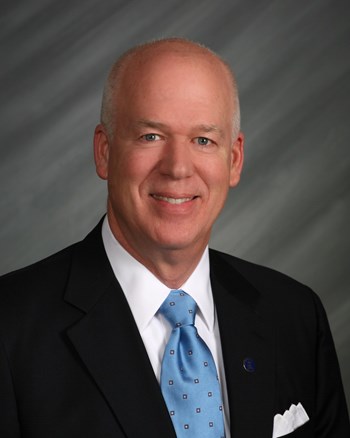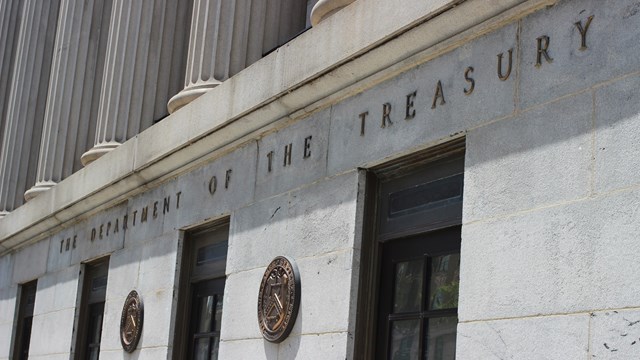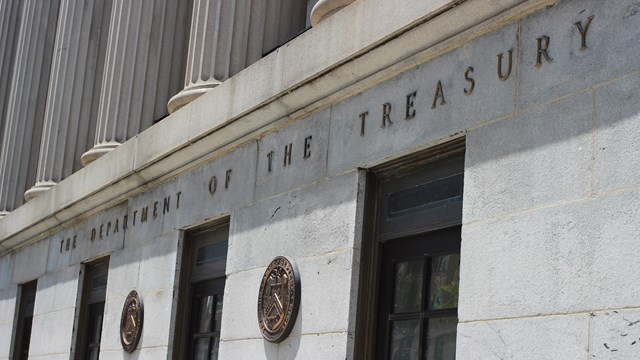
On May 20, Richard H. Steen became the 112th president of the New Jersey State Bar Association (NJSBA), continuing the tradition that began in June of 1899, when the NJSBA was launched in Atlantic City by 74 attorneys from around the state.
“The mission of the NJSBA is to advance the interest of lawyers, advance the interest of justice and advance the interest and public awareness of the law,” Steen says. “We are the voice of the profession statewide.”
The organization’s website defines the NJSBA’s responsibilities a bit more. It reads: “To serve, protect, foster and promote the personal and professional interests of its members. To serve as the voice of New Jersey attorneys to other organizations, governmental entities and the public with regard to the law, legal profession and legal system. To promote access to the justice system, fairness in its administration and encourage participation in voluntary pro bono activities.”
“We offer impact on the legislative front both in terms of issues that affect lawyers and the state of the law generally as it affects the clients and the lawyers,” Steen says. “We’re very involved with the legislature. We have committees in the association that are active in almost every area of law. We have a criminal law section, a probate section and a variety of others. We have recognized experts and our groups are helpful to the legislature in looking at proposed legislation and understanding how it will affect the existing law.”
The NJSBA Timeline
During the NJSBA's first decade, the group formed its Committee on Law Reform, aimed at improving the practice of law and administration of justice in the state, overhauled the Court of Errors and Appeals, adopted its first Canon of Ethics, and charged a five-person nominating committee with selecting the first NJSBA officers.
Then-governor Woodrow Wilson addressed the NJSBA in 1912, noting that the public was losing respect for the law profession because of its media image and long, drawn-out lawsuits.
Over the next five years, the NJSBA approved Practice Acts and Rules of Court, which were then put into effect by the New Jersey Legislature. Issues of concern were the Court of Chancery and the rights and liabilities of married women. The group also advocated more stringent educational requirements, as well as evaluations of character and ethics as prerequisites to be admitted to the Bar.
The NJSBA's membership swelled more than 30 percent as the Great Depression tightened its grip on the country in the 1920s and 30s, and the group supported the repeal of Prohibition. As the number of lawsuits brought to court increased over the next decade, the state legislature formed its Judicial Council to assess the upsurge, and the NJSBA formed its first special section. The new Junior Section was followed by the Banking Law Section, and after that, the General Council.
The postwar period of 1941-1950 saw the Ethics and Grievances Committee adopt its first ethics opinion as a system of monitoring member attorneys. It was also an important decade as New Jersey officials approved a new state constitution, which included the formation of the New Jersey Supreme Court. In 1945, the NJSBA Committee on Legal Education began to offer refresher courses for attorneys returning from service in World War II.
The group established its Victims of Violent Crimes Compensation Board in the 1960s, and in 1969, then-governor Richard Hughes approved the NJSBA's proposed procedures for the selection and appointment of judges to all the state's courts. In an effort to streamline court operations in the 1970s, the NJSBA supported the state's court unification proposal to incorporate the state's county courts into a superior court system.
The organization opened its membership to paralegals, law office administrators and other non-lawyers as associate members in the 1980s, and by 1989, the NJSBA had created a judicial administration staff position.
In the last decade of the 20th century, the group established its Supreme Court Special Committee on Matrimonial Legislation, and in 1997 won a major victory when the Supreme Court ruled to eliminate the Entire Controversy Doctrine for lawyer malpractice claims.
Today's NJSBA
Because the responsibility of being president is very time consuming, the terms for officers in the NJSBA is only one year. However, before coming president, those chosen spend time as different officers first. In addition to Steen, those who were inducted this year are Susan A. Feeney as president-elect, Kevin P. McCann as first vice president, Ralph J. Lamparello as second vice president, Paris P. Eliades as treasurer and Miles S. Winder III as secretary.
As president, Steen will act as the voice of the NJSBA over the course of the next year. One of his first jobs as a young lawyer was working for the State Bar, and he helped craft the bar's legislative program.
“I spent four terrific years lobbying in Trenton and Washington, and saw firsthand our association's valuable role not only as the leading voice of the profession, but also as a defender of the fair administration of justice for the public,” Steen says. “Although my career has taken some turns since then, I haven't forgotten those lessons from my youth or lost my excitement about the work of the bar.”
Steen says his goal is to bring passion and energy to address the critical issues facing all New Jersey lawyers, including the economy's continued effects on the job market, the need to promote diversity and inclusion in the legal community, and threats to the traditional role of the practicing attorney.
“I am looking at factors that affect lawyers' practices as issues are coming through in the developing global economy,” he says. “There are differences in the way the law is practiced in different countries. [We're addressing] some of the international aspects of providing legal services and looking at those as to what the impact will be.”
The still-struggling economy's effect on legal professionals is another area Steen plans to devote time to.
“Whether it’s helping to find opportunities for attorneys who are looking for employment,” he says, “or for those who will open their own practice this year, we’re giving them the tools and info to do that more successfully.”
With another crop of lawyers being sworn in on June 1, the state’s newest attorneys will not have it easy.
“Young people who went to law school believing they would join a noble profession—a profession that would allow them to make a difference in society while earning a good living for their families…unfortunately, the employment landscape that greets them will be grim,” Steen says. “The darkest days of this recession may seem to be behind us, but the legal profession remains in turmoil. The NJSBA is committed to helping lawyers navigate these troubled times by continuing to help them get their practices up and running, and be a resource for those who have already hung out their own shingle.”
Steen says that in addition to navigating the recessionary waters, another big topic on deck for 2010 is diversity in the legal profession.
“This year, we're convening a Summit on Diversity to examine the progress we have made to expand opportunities for the various members of the legal community and to chart a path forward toward the goal of building a more inclusive profession,” Steen says. “In that same vein, at our mid-year meeting in Scottsdale, Arizona we'll be focusing on ways to help those most affected by the recently enacted immigration laws.”
Up for the Challenge
At the annual NJSBA meeting in May, Steen spoke about the concern in the industry over trends that have made the legal business a more perilous landscape.
“In recent years, we have seen law firms outsource research and brief-writing overseas,” said Steen to those gathered. “We have seen the rise of non-lawyer-owned firms. And starting next year in England, a supermarket chain is expected to start selling self-help legal kits. There is real cause for concern about how these new trends are diminishing the importance of practicing lawyers and the public's access to quality legal services.”
To help, Steen plans to establish a task force this year that will focus on the future of delivery of legal services, while maintaining the mission of the NJSBA.
Another challenge that New Jersey lawyers face deals with judicial independence, as there continues to be a lot of debate about this in the law community.
“New Jersey does not elect its judges like many states do,” says Steen, “and the bar and state have a strong, long-standing recognition of the independence of the judiciaries civil branch of government. We are blessed in New Jersey by one of the most respected State Court systems in the nation. That is because it is a truly independent and impartial branch of government, where judges made decisions based on the law and the facts, not ideology.”
Steen says that the NJSBA will remain firmly committed to the principle of judicial independence and fight to preserve the sanctity of the justice system. “A truly inclusive bar is strong. It is influential. It is powerful. And it is meaningful in today's global marketplace.”
“The legal profession has a proud history of helping not only our clients, but also our colleagues. Our success is dependent on the success of each of us,” Steen says. “Lawyers are the people entrusted to zealously guard the fair administration of justice, we should make sure there is room for everyone - at every level of the profession—from law schools to the highest court.”
Keith Loria is a freelance writer and a frequent contributor to The New Jersey Cooperator.






Comments
Leave a Comment